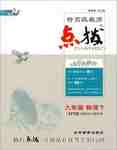Cheerful Charlie was a very
special boy. When he was still in his mother’s
tummy(肚子), she
had had an accident, which 36 that Charlie couldn’t walk. But that had never been a(n) 37 for
him; he had always been happy. When he became older, they had started calling
him Cheerful Charlie because of his joyful and 38 nature.
He really brightened everything up for those around him.
There wasn’t a postman, or a taxi driver who wasn’t
39 to see Charlie. “Cheer
up, Mr Postman, that way you’ll 40 more
letters today!” he would say, or “That was great, Mr Taxi Driver. You 41 that
thing better than anyone else.” He also had great ideas and 42
for everything; and he shared them so 43 that,
just about every day in that town, someone did a great job, or 44
something new, thanks to Charlie’s
ideas.
One day,
though, he came up against a real 45 . A young boy
came to town on his holidays. He was known as Waterworks and was a real
crybaby. No matter what Charlie said to him, Waterworks would always find some 46
to be sad: “I don’t
have many sweets…my parents didn’t buy me that toy…” Everything seemed so bad to him.
But Cheerful Charlie wasn’t going to be 47
, and he kept spending more time with Waterworks, 48 trying
to cheer him up, just as he did with everyone.
Then, one day,
when they were together in the street, someone 49 a
pie from a window above by chance, and it landed 50 on
Charlie’s head. He got such a fright that he couldn’t even move his lips. He was speechless, and 51
Waterworks was just about to cry, he 52 Charlie’s happy words so much that he finally said, “Wow, Charlie, that’s a nice clown mask (小丑面具) you just 53
!”
On saying
those words, Waterworks felt so 54 that he
finally understood why Charlie was always so happy and cheerful. He realized
that he was so used to Charlie’s enthusiasm that he couldn’t help but see the fun 55 of
everything.
1.A. reflected B.
meant C. told D.
predicted
2.A. problem B.
mistake C. excuse D.
topic
3.A. sensitive B.
humorous C. responsible D.
enthusiastic
4. A. surprised B.
moved C.
pleased D. disappointed
5.A. send B.
write C.
print D.
find
6.A. paint B.
play C.
park D.
repair
7.A. theories B.
solutions C.
comments D. impressions
8. A. eagerly B.
carefully C.
quickly D. generously
9.A. cleared B.
noticed C. enjoyed D.
invented
10.A. difficulty B.
surprise C. risk D.
disaster
11.A. means B.
reason C. method D.
value
12.A. let down B.
taken up C. set free D.
driven away
13.A. hardly B.
quickly C. constantly D.
specially
14.A. aimed B.
moved C.
threw D.
dropped
15.A. ahead B.
right C.
almost D. even
16.A. because B.
but C.
therefore D.
although
17.A. missed B.
loved C.
envied D. disliked
18.A. set on B.
put on C. build up D.
make up
19.A. ordinary B.
sorry C.
good D.
curious
20.A. result B.
wonder C. side D.
influence

 特高级教师点拨系列答案
特高级教师点拨系列答案 文敬图书课时先锋系列答案
文敬图书课时先锋系列答案
 特高级教师点拨系列答案
特高级教师点拨系列答案 文敬图书课时先锋系列答案
文敬图书课时先锋系列答案